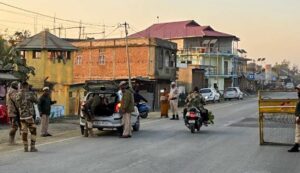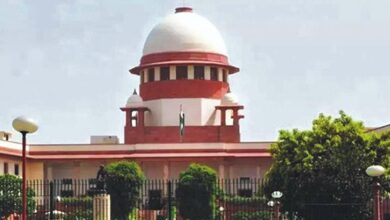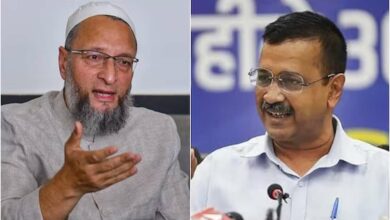Security beefed up in Manipur capital Imphal after imposition of President’s rule
Imphal: Amid ongoing ethnic violence and political unrest in the area, Imphal, the capital city, saw an increase in security on Friday after the imposition of the president’s authority in Manipur. Following a report from the state governor, President Droupadi Murmu declared President’s Rule in Manipur on Thursday.

The action was taken a few days after N. Biren Singh resigned on February 9 as Manipur’s chief minister. The state had been beset by political unrest and bloodshed for over two years before he resigned.
The decision, which was made in accordance with Article 356 of the Constitution, implies that the President will now have direct authority over the state’s administrative operations via the Governor.
The Union Home Ministry’s announcement, which was published in the Indian Gazette, declares that Parliament would take over the Manipur Legislative Assembly’s powers, therefore suspending the state government’s jurisdiction.
In order to ensure efficient central administration, certain articles of the Constitution, including those pertaining to legislative procedures and governance, have been suspended. The President will now exercise the Governor’s powers, and Parliament will take over the authority of the state legislature.
When a state administration is judged unable to operate in accordance with constitutional standards, President’s Rule is usually imposed. The action comes after Manipur’s political unrest and issues with law and order. Due to the suspension of legislative powers, the President or Parliament will now have ultimate authority over all state laws and decisions.
If legislative permission is obtained, the imposition of President’s Rule may last for up to six months. The central government will be in charge of governance during this time, and new elections could be held to choose a new legislature.
Conflicts between the minority Kuki-Zomi tribes and the dominant Meitei group were the main cause of the instability in Manipur. Conflicts over land rights, employment quotas, and economic rewards caused tensions to rise. About 60,000 people were displaced, and hundreds of people were killed in the unrest.





